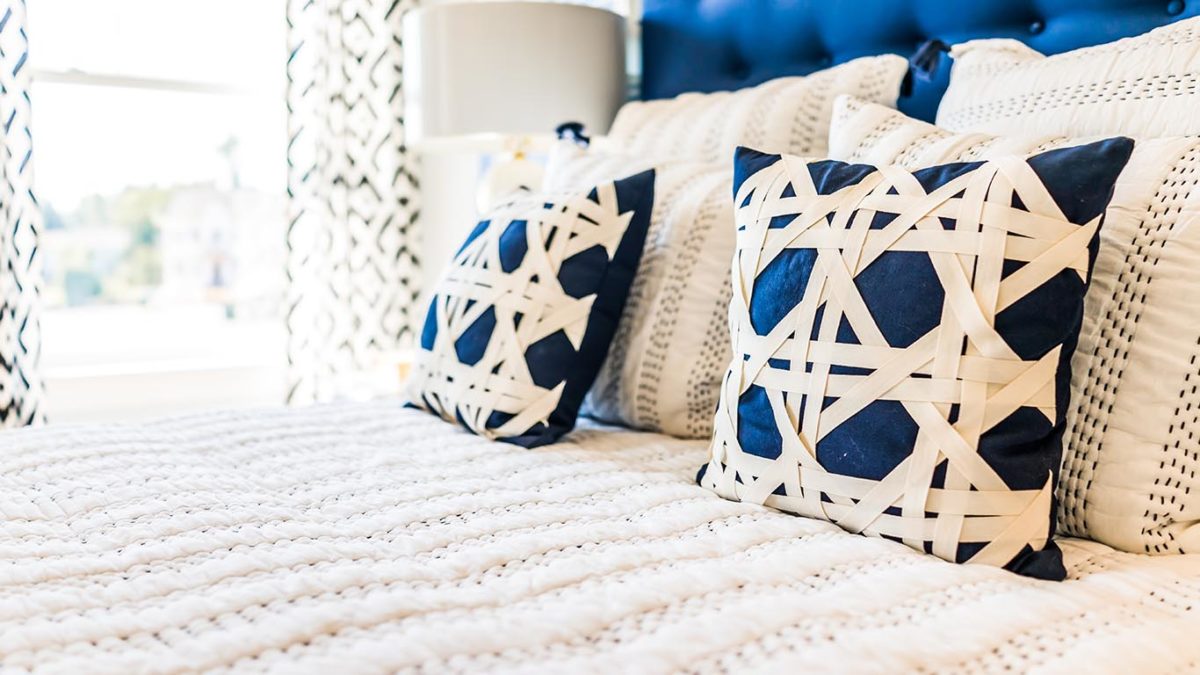The process for buying a home has changed rapidly over the past few years. From letter writing to forgoing inspections to offering tens of thousands of dollars over asking, first-time home buyers are entering a difficult market with low inventory. Here are a few do’s and don’ts to keep in mind when buying a home to help you find the house of your dreams with as little stress as possible.
Do make sure your finances are in order
First things first. Before you even think about purchasing your first home, make sure you’ve set yourself up for financial success. Do an audit of your finances to ensure that you’re prepared not only for the down payment but also for the ongoing costs of owning a home.
First, look at your savings account. There are considerable upfront costs when buying a home, such as the downpayment and closing costs. You’ll need enough money put away to cover these expenses, as well as an emergency fund with enough cash to cover three to six months’ worth of living expenses. And this isn’t just a suggestion to save you from sleepless nights in the future. Many lenders will require you to demonstrate that you have these funds available for emergencies.
Next, review your spending. Keep a careful watch on where your money is going every month, as this will help you make an informed calculation as to how much you can allocate toward a monthly mortgage payment.
Finally—and this is a big one—check your credit. Your credit score is a crucial factor when it comes to securing the most favorable terms for your mortgage loan. It’s recommended to have a credit score of 620 or higher. To improve your credit score, make sure you pay all your bills on time, decrease the amount of credit you’re using, and if possible, increase your credit limit.
Don’t forget about first-time homebuyer programs
As a first-time home buyer, you might be wondering “how do people afford houses anyway?” Well, there are actually some benefits for first-time homebuyers that can help make homeownership more affordable. Owning a home is the American dream, and there are various state programs, tax breaks, and federally backed loans to help if you don’t have the standard minimum down payment, which is usually 20 percent of the price of the home.
Heck, you might even qualify for some first-time home buyer advantages even if this isn’t your first rodeo. The U.S. Department of Housing and Urban Development defines a first-time buyer as anyone who meets the following criteria:
- Anyone who has not owned a principal residence for three years. This applies even if you’ve owned a home but your spouse has not. You can still purchase a home together as first-time homebuyers.
- Single parents who have only owned a home with a former spouse.
- A displaced homemaker who has only owned a home with their spouse.
- Anyone who has only owned a principal residence that wasn’t permanently affixed to a permanent foundation.
- Anyone who has only owned a property that was not in compliance with state, local, or model building codes and which cannot be brought into compliance for less than the cost of constructing a permanent structure.
Do get pre-approved before looking for a home
In addition to exploring any government programs that can help you with your first home purchase, you should also get approved for a mortgage loan before you even start to think about looking at homes—especially if buying a house out of state. Inventory is currently tight because buyer demand is far higher than the supply of affordable homes on the market. This means that to stand out from other potential buyers you need to have a fully underwritten loan pre-approval (or cash in hand). Sellers don’t want to take a risk on someone who makes an offer if they’re not sure they can get a mortgage. This is especially true in today’s competitive market when there will likely be many other offers on the table.
Don’t talk to just one lender
It’s definitely crucial to have a preapproved mortgage in hand when you start your home search, but one of the most common first-time home buyer mistakes is to accept the terms of the first mortgage company you talk to. By not shopping around for your mortgage, you could potentially be leaving thousands of dollars on the table. Experts recommend comparing offers from at least three different mortgage lenders to be sure you lock in the most favorable rates for you and your family. There are a few questions to ask for first-time home buyers when comparing offers:
- What is the interest rate?
- Are there any lender fees?
- What are the loan terms?
Crunching the numbers is crucial, but you should also take into consideration customer service and responsiveness. After all, this lender will be in your life for many years to come—you want to make sure it won’t be a hassle every time you need to work with them.
Do ensure you buy a home you can afford
There’s no single answer when it comes to how many houses to look at before buying, but no matter what you do, make sure the home you choose is well within your budget. Many first-time buyers can get caught up in the excitement of house hunting, falling in love with a home that stretches their budget. But just because your lender says you qualify for a $500,000 loan, that doesn’t mean you should take it.
Buying more home than you can reasonably afford can put you at a higher risk of foreclosure if you go through unexpected financial difficulties, and can also prevent you from saving for other important goals like retirement and your child’s education. Instead, focus on finding a home with a monthly payment you can afford, rather than the maximum loan amount you can qualify for. You’ll thank yourself in the long run.
Don’t forgo the inspection
Once you’ve found a home you love and that you can reasonably afford, you should still have it inspected. While you might feel pressured in today’s hyper-competitive market to skip this step—don’t. When you put in an offer, you should include a home inspection contingency. This gives you the right to have the home inspected within a specified time period and, depending on the findings, you can negotiate to have repairs done or cancel the contract entirely.
While there are different types of home inspections, a general home inspection is the most common. However, if you have specific concerns about the home, you can also decide to do more specialized inspections that investigate everything from the state of the HVAC system to the condition of the pool if the home has one.
Do shop smart for furnishings
Once you’ve got your financial house sufficiently in order to buy a physical house, don’t break the bank on furniture. There will certainly be unexpected expenses once you find the home of your dreams, so it’s important to keep a tight rein on the initial costs of moving and furnishing your new home.
Furnish your first home with CORT Furniture Outlet. Whether you shop online or at your local CORT Furniture Outlet Showroom, you’re sure to find decor and furniture items that will help you showcase your style without breaking the bank. Shop our selection of new and gently used furniture today and take up to 70% off original pricing.




